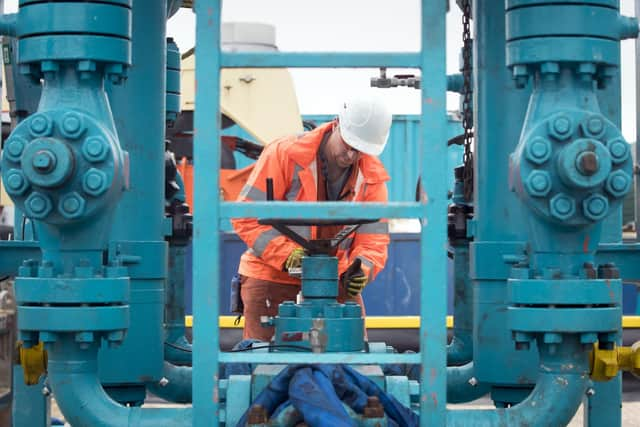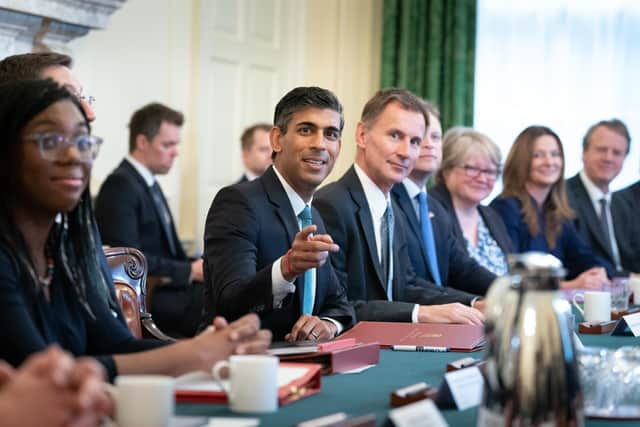What is Fracking: Rishi Sunak reinstates fracking ban lifted by Liz Truss, why fracking is controversial
Liz Truss, who recently became Britain’s shortest-serving PM following an abrupt resignation, had announced plans to bring back fracking which for some is a controversial method of gas extraction. However, Rishi Sunak has since reinstated the moratorium on fracking in England and confirmed this during his first Prime Minister’s Questions by Green Party MP Caroline Lucas who pressed him on the issue.
While climate change activists celebrate the move as it is considered more environmentally friendly, others fear for the state of Britain’s energy amid the energy (and economic) crisis affecting the nation.
What is fracking?


Advertisement
Hide AdAdvertisement
Hide AdFracking or ‘hydraulic fracturing’ is a “drilling method used to extract petroleum (oil) or natural gas from deep in the Earth,” according to National Geographic. In this process, cracks within the planet’s surface are pushed open by injecting a mixture of water, sand and chemicals at high pressures.
This is why resources obtained from fracking may be referred to as “tight gas” or “tight oil” as these fossil fuel pockets are tightly trapped in durable shale rock structures. Resulting products like natural gas are widely utilised in the UK to produce electricity and heat homes.
When did fracking start?
Fracking was first used in the UK in the late 70s as the nation extracted oil and gas from the North Sea however it was developed in the US during the 40s. Licences were granted in 2008 for on-shore exploration however three years later in 2011 the extraction method was paused after an earthquake tremor damaged the fracking well in Lancashire.


This pause was lifted the following year as a set of regulations were applied which required that fracking must be halted for 18 hours if tremors hit a level of 0.5ML; the earthquake tremor that caused the pause reached 2.9ML. Although Conservatives pledged to maintaining the temporary ban or ‘moratorium’ on fracking in their 2019 manifesto, Russia’s invasion of Ukraine prompted reconsideration as it became paramount to reassess Britain’s energy supplier - last year imports of gas, coal and oil from Russia to the UK amounted to £4.5 billion in value, according to the parliament website.
Former PM Liz Truss lifted the fracking ban as she argued it would reduce the UK’s dependence on the resource from overseas suppliers and improve our energy supply but this has since been reinstated by Rishi Sunak.
Why is fracking controversial?
According to a report by The Independent, fracking is “regularly attacked” by environmentalists as they are concerned that it destabilises the Earth and pollutes groundwater. While some support it for enabling energy suppliers to access hard-to-reach resources while creating jobs, environmental activists cite it as an example of exhausting finite fossil fuels rather than prioritising renewable energy sources in the wake of climate change.
It is also argued that the process causes ground instability by damaging the underground rock which can cause tremors or earthquakes, the caustic chemicals used for drilling also threaten to contaminate groundwater. Tony Bosworth, a campaigner for Friends of the Earth, said: “We need a 21st century energy revolution based on efficiency and renewables, not more fossil fuels that will add to climate change.”
Why has Rishi Sunak reinstated the moratorium on fracking?
Liz Truss’ advocacy of fracking sparked huge criticism from opposition parties, activists and even a few Tory MPs from constituencies that were considering fracking - the chaos surrounding her vote to support the extraction method is seen as a huge contribution to her downfall as prime minister.
Advertisement
Hide AdAdvertisement
Hide AdWhen the Government used a three-line whip against the Labour party seeking to ban fracking, stating that it was a confidence issue which could result in expulsion from parliament given failure to comply, 40 Tory MPs voted against the Government. Therefore, upholding Truss’ stance on fracking would place Rishi Sunak at odds with his Tory peers and threaten to harm his leadership in its early stage especially while short-serving premierships are on the table.
Comments
Want to join the conversation? Please or to comment on this article.
